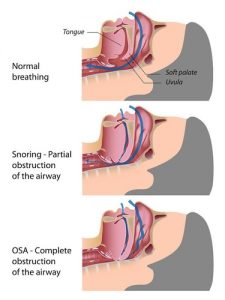Almost everyone knows a person who snores or is one of those people who snore habitually. While snoring is known as one of the most common problems, there are many people whose lives have been disrupted by the same. Whether you are looking out to ensure that your partner stops snoring or if you are taking all measures to stop your snoring, this needs to be done for your heath as well.
What many don’t realize is that snoring has a lot of health side effects as well. Yes, snoring annoys you and the other person while you are sleeping but it can cause a lot of other major problem within your body, and you might not even know about it until it is too late. So before you look for tips to stop snoring, here are some of the ways in which snoring can affect your health negatively.
Sleep apnea
This is one of the most common problems that is associated with snoring, and it is quite serious. Thanks to your air passageways being blocked, it can be lead to you losing breath for ten seconds or more when you are sleeping. This is not a good thing at all and has to be dealt with as soon as possible.
Affects the brain
Since snoring is caused when the air passageways are congested, it means that you do not always get as much oxygen as you need. This means it can affect the brain as the cerebral fluid starts taking up the place that is left by the lack of oxygen. An increase in the cerebral fluid can lead to many problems such as memory loss and more.
Tiredness
If you are suffering from heavy snores, you might be unable to get a good night’s rest often. This means, you are always tired and sleepy and this can certainly affect the way your life works. A good night’s sleep is necessary for the body to be well-prepared for the next day and if you don’t get the same often, it means that it can lead to heavy complications for your system.
Blood pressure
As it was mentioned above, thanks to the windpipes being too tight, you will be unable to get the amount of oxygen you need in your system. This means that the oxygen levels in your blood becomes low and can lead to increased blood pressure and more strain on your heart. This is a very serious issue, not to be taken lightly at any cost.
Headaches
If you do not get a good night’s sleep, it can lead to a lot of problems such as headaches. It has been found that people who suffer from sleep apnea and common snoring problems have a tendency to wake up with throbbing heads up to four times when compared to the rest.
With so many health issues that come along with snoring, it is indeed time to look out for tips to stop snoring. It can help you effectively curb the same and save your body!










